Description
ABSTRACT
Protection of Consumer Rights in Secured Credit Transactions in Nigeria
Felicia Monye* and Benjamin Mukoro**
Consumers are usually in a disadvantaged position in credit transactions involving compelling actors. This situation has often resulted in one-sided transactions where credit contracts are inherently lopsided or operationally skewed in favour of overbearing creditors. To protect the interests of consumers of credit, financial consumer protection standards have been developed both at multilateral and national levels with the overriding aim of ensuring financial inclusion, which is a crucial metric of consumer protection. Nigeria has put in place some laws and regulations designed to protect consumers of credit both generally and with specific reference to secured transactions in movable assets. These instruments are examined in this paper. The work reveals that while the consumer protection framework is generally satisfactory, there are certain shortcomings, such as multiplicity of regulatory mechanisms and poor enforcement of standards. It is recommended that financial consumer protection laws and regulations be consolidated for effective enforcement.
Keywords: Consumer Credit, Secured Transactions, Movable Assets, Financial Consumer Protection, Consumers of Financial Services, Consumer Rights.
INTRODUCTION
The financial sector usually brings together actors from different educational, financial and social backgrounds, with the consumer almost always at the weaker end. Big firms and corporations are often matched against small businesses and individuals with very little education and/or information. This leaves consumers of financial products and services at the mercy of the providers. To protect the interests of consumers, a dedicated area of consumer protection, financial consumer protection (FCP), has evolved. FCP ‘encompasses the laws, regulations, and institutional arrangements that safeguard consumers in the financial marketplace’.1 The World Bank has developed a set of Good Practices to serve as a practical, comprehensive reference and assessment tool to assist regulators in enhancing and implementing financial consumer protection regulatory and supervisory framework. These are legal and supervisory frameworks; disclosure and transparency; fair treatment and business conduct; data protection and privacy; and dispute resolution mechanisms.2
* LL.B, BL, LL.M, PhD. Professor of Law, Department of Commercial and Corporate Law, Faculty of Law, University of Nigeria, Enugu Campus, Nigeria.
** LL.B, BL, LL.M. Doctoral Candidate at the Department of Commercial and Corporate Law, University of Nigeria, Nigeria. Associate, Nigerian Institute of Chartered Arbitrators.
- The World Bank, ‘Responsible Financial Access: Explore Data on Policies and Regulations from 141 Economies’ accessed 24 March 2021.
- The World Bank, ‘2017 Good Practices for Financial Consumer Protection’ accessed 24 March 2021.

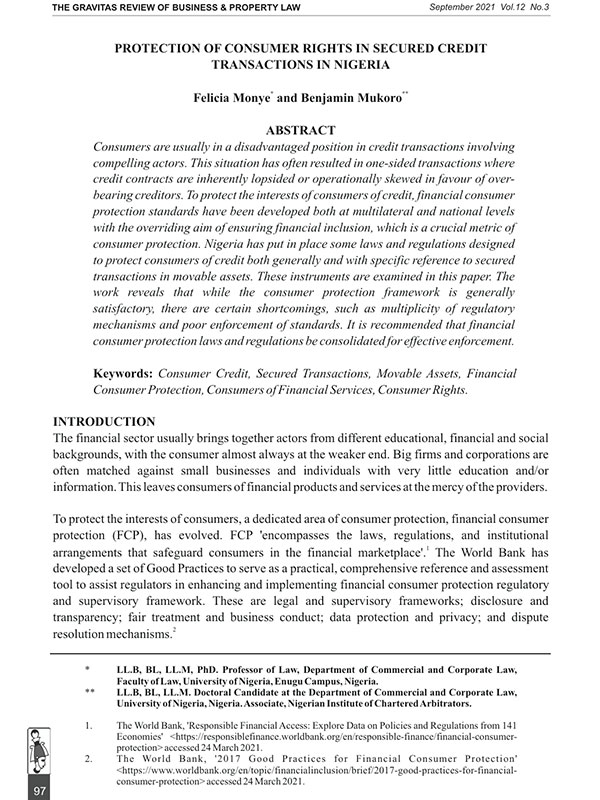
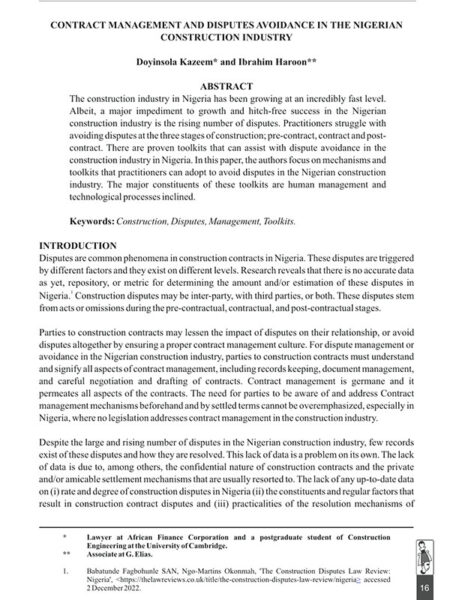
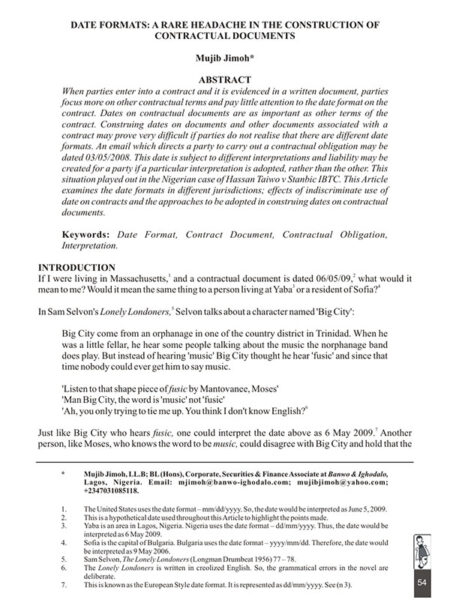
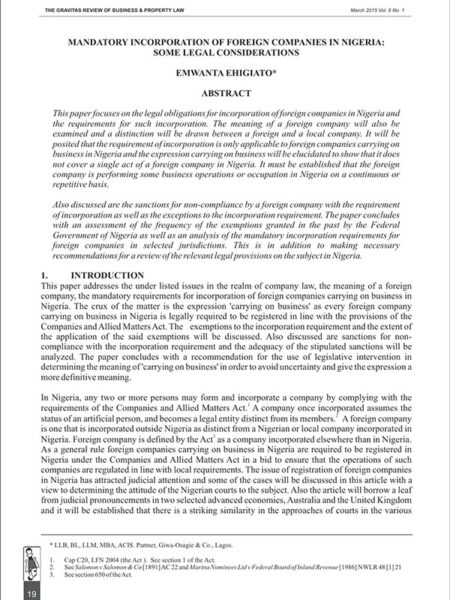
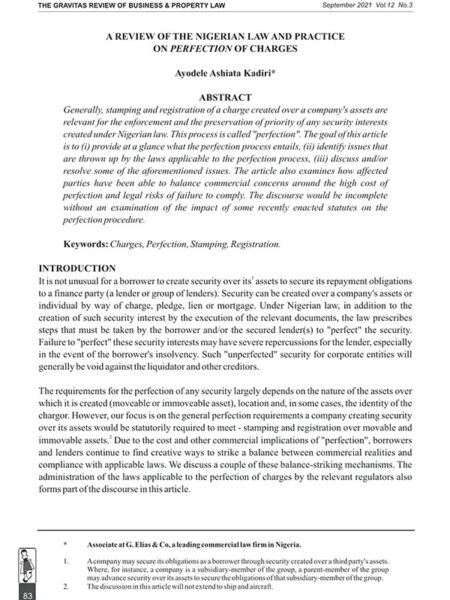


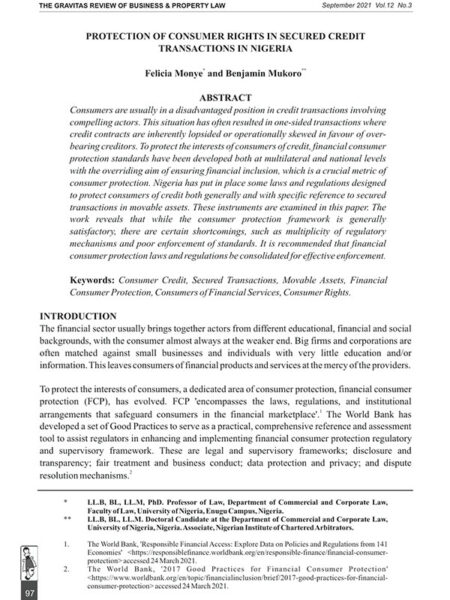
Reviews
There are no reviews yet.